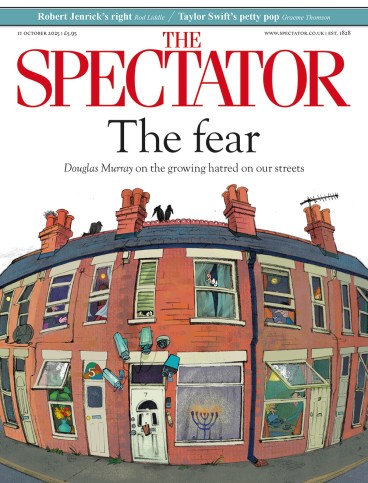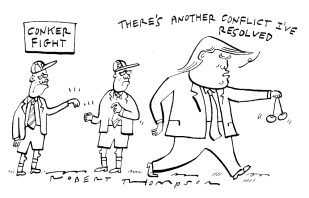
In the UK and elsewhere in the West, lesbian and gay rights have largely been won. Over the past two decades, rights to adoption, marriage, military service and workplace protection from discrimination have become law. Social inequality is another matter, and acceptance of same-sex relationships is now less widespread than it was ten years ago. According to Ronan McCrea, the author of The End of the Gay Rights Revolution, this can be explained – at least in part – by the political overreach of the LGBTQ+ movement.
Is McCrea self-hating, riddled with internalised homophobia? Could it be that the movement has demanded too much, over and above acceptance and tolerance? As the title suggests, the book is a critique of the overreach and demands of some of the more radical campaigns. It also highlights the cavalier attitude of some gay men who seem to think that because they have experienced oppression, liberation should mean doing whatever they want, regardless of the consequences.
A professor of constitutional and European law at University College, London, McCrea gives a meticulous account of how legislation has advanced gay rights and – especially more recently in the US – set them back. He also delves into an area that will doubtless get him cancelled: the impact of mass migration from conservative religious countries, especially those in which gay sex is illegal or severely stigmatised. This has affected the socially liberal attitudes largely taken for granted since the Aids crisis and the ensuing prejudice of the 1980s and 1990s.
When McCrea uses the word ‘overreach’, he is talking about the failure to notice that even within a liberal society tolerance pushed too far can soon turn to intolerance. He quotes Andrew Sullivan, the British-American conservative political commentator, who wrote in the 1990s:
The goal of any civil rights movement should be to shut itself down one day. And once we get marriage equality and military service, those of us in the gay rights movement should throw a party, end the movement, and get on with our lives.
This didn’t happen. Instead, demands expanded, creating new enemies. And when trans issues and self-ID became dominant in the movement, many lesbians – including left-wing feminists – found themselves in stark opposition.
McCrea is right about the gung-ho fashion in which safe sex has been abandoned. Like a gay Louise Perry (a conservative feminist, author of The Case Against the Sexual Revolution), he seems to be advocating for gay men to return to a more conservative lifestyle. Bearing in mind that an estimated 40 per cent of them invite a third person into their relationship, this argument has legs. But those who need to learn this lesson probably won’t read this book. Radical queers will be instantly hostile to it without even turning a page. This is a tricky time for a gay rights movement dominated by gender identity and ideology, and the ever-growing LGBTQ+ abbreviation means any letter south of the B could just as well describe an interesting haircut or a straight kinkster.
Inviting groups that are neither oppressed nor connected to same-sex attracted people into this movement (such as it is) exemplifies the overreach McCrea speaks of. Far from diversifying and strengthening the movement, asexuals and ‘spicy straights’ have dragged it down. Lesbians have become alienated and gay men complacent.

Right-wing bigots appalled by same-sex relationships tend to leave us alone, preferring to target the Drag Queen Story Hour ‘paedophile threat’. Prejudice against gay men and lesbians, which used to lead to accusations that they were a danger to children, had largely been overcome. This new wave of queers in the alphabet soup has rolled out the red carpet for it. A warning runs through this book: rights are never linear, and laws and social policy – as well as attitudes – can be rolled back in the blink of an eye. It is already happening.
There is no LGBTQ+ ‘community’. Such a thing would be practically impossible, especially given significantly divergent views and conflicts of rights. Those with an eye on human rights legislation, freedom of expression and core British values (if they exist) must not be pushed out of the conversation and told it’s got nothing to do with them. It has. McCrea cites both the post-liberal society (conjured up, in part, by the overreach of the sexual revolution and by religious Muslim immigration) and Stonewall’s demands for full validation.
For a movement founded on the notion that individual liberty and views should be tolerated, the overreach of the gay rights movement has been remarkable. McCrea sets out exactly how this came about. I’ve been wondering, lately, whether I might be moving away from radical politics. But reading this book, it dawned on me that it’s not me that’s changed, it’s the movement.










Comments